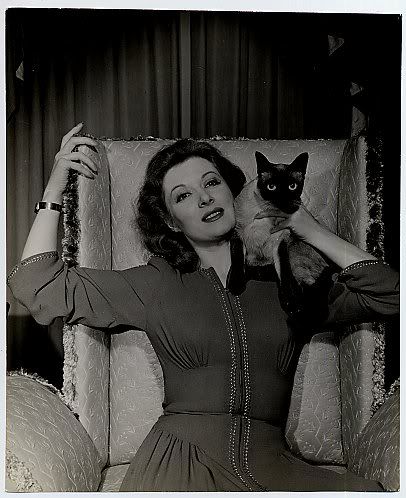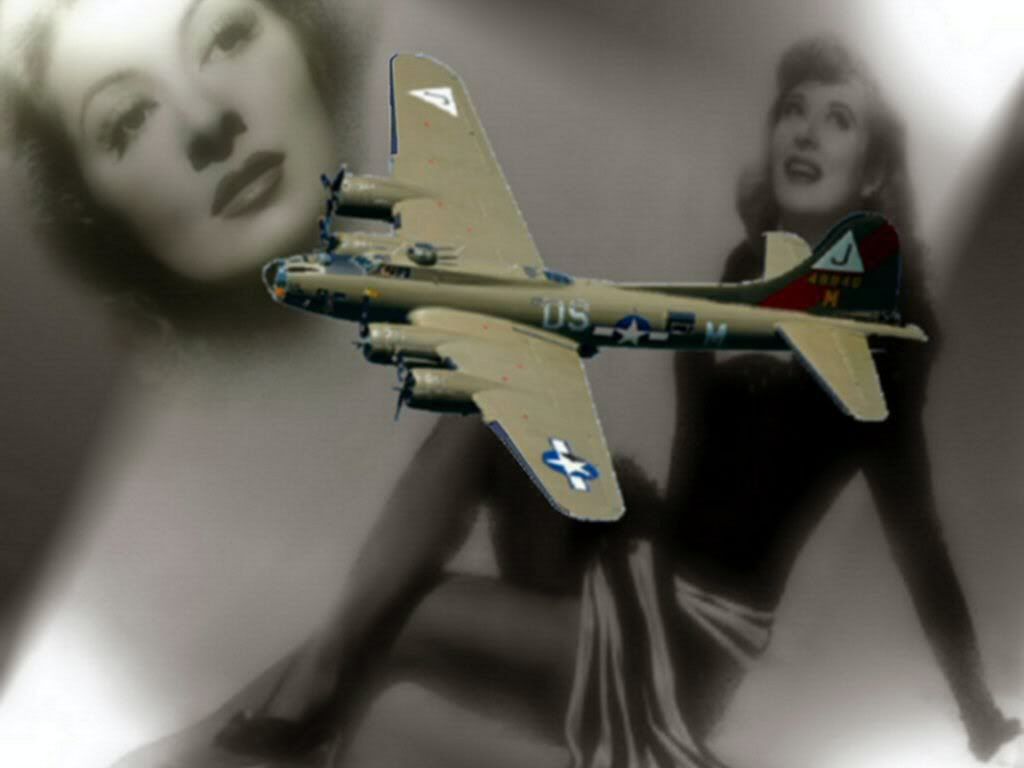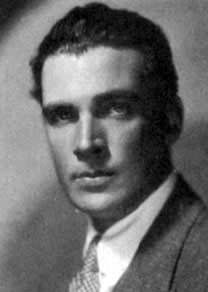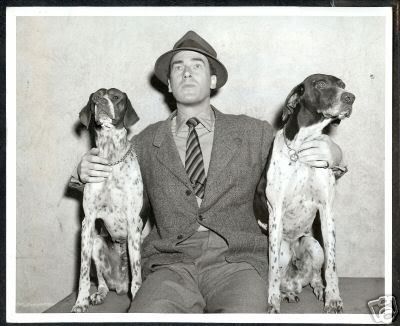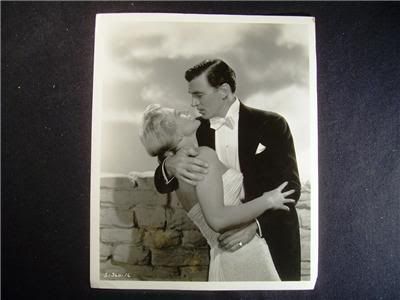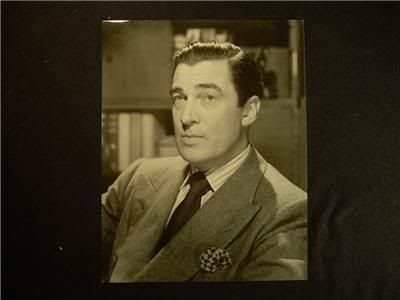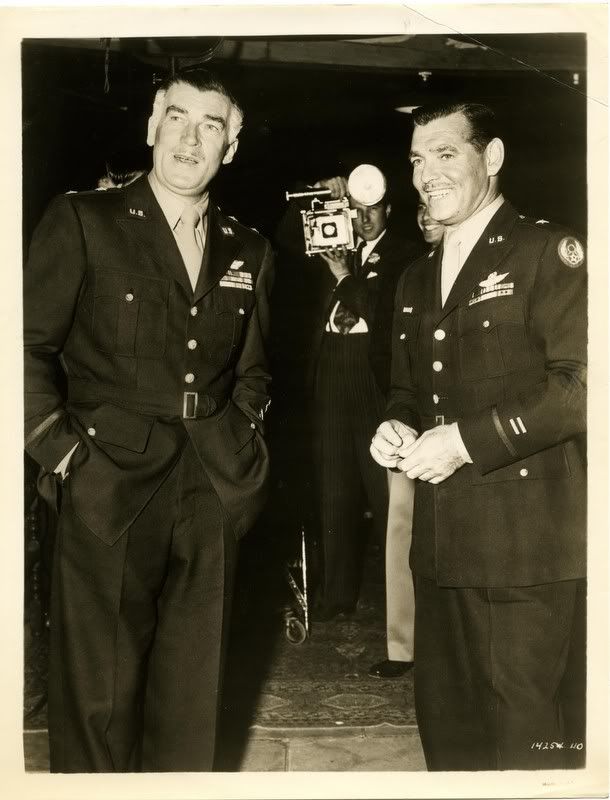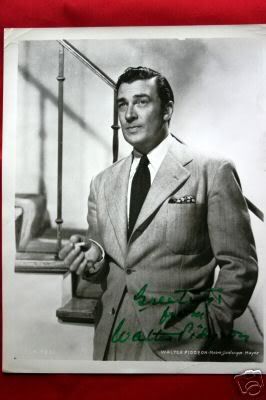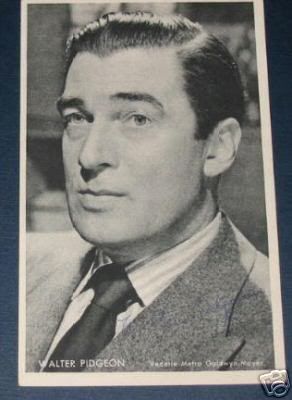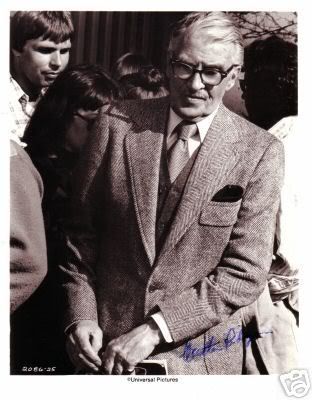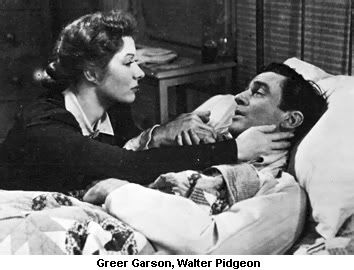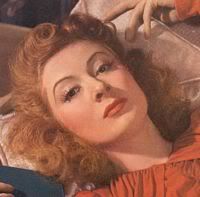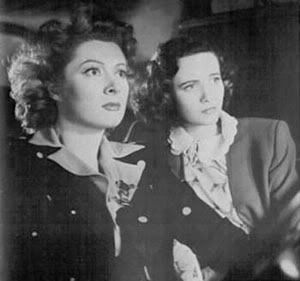Post by butterscotchgreer on Jun 23, 2007 0:11:17 GMT -5
walter is my most favorite of her leading men in all their movies together!!!
Date of Birth
23 September 1897, Saint John, New Brunswick, Canada
Date of Death
25 September 1984, Santa Monica, California, USA. (stroke)
Birth Name
Walter Davis Pigeon
Height
6' 2½" (1.89 m)
Mini Biography
Walter Pidgeon, a handsome, tall and dark haired man, began his career studying voice at the New England Conservatory of Music in Boston. He then did theater, mainly stage musicals. He went to Hollywood in the early 1920s where he made silent films, such as Mannequin (1926) and Sumuru (1927). When talkies arrived, Pidgeon made some early talkie musicals, but never received top billing or recognition. In 1937, MGM put Walter under contract but only in supporting roles and the other man roles - such as in Saratoga (1937) opposite Jean Harlow and Clark Gable and in The Girl of the Golden West (1938) opposite Jeanette MacDonald and Nelson Eddy. Although the 2 films were big successes, Pidgeon was overlooked for his contribution to the films. MGM loaned him out to Fox where he finally had top-billing in How Green Was My Valley (1941). When he returned to MGM, they tried to give him bigger roles and cast him opposite frequent co-star Greer Garson. But Greer seemed to come up on top in _Blossom in the Dust (1941)_ and Mrs. Miniver (1942), although Pidgeon did receive an Oscar nomination for his role in the latter movie. He remained with MGM till the mid-1950s, making films like Dream Wife (1953) and Hit the Deck (1955) with Jane Powell and old pal, Gene Raymond. In 1956, he left the movies to do some theater, but returned in 1961. He retired in 1977, and suffered several strokes which eventually led to his death in 1984.
IMDb Mini Biography By: Donovan Webber
Spouse
Ruth Walker (12 December 1931 - 25 September 1984) (his death)
Muriel Pickles (1922 - 26 October 1926) (her death) 1 child
Trivia
First wife died in childbirth.
Became U.S.Citizen
Featured baritone in the Broadway production "The Puzzles of 1925."
His body donated to UCLA Medical School, Los Angeles, California, USA.
President of Screen Actors Guild (SAG). [1952-1957]
Had a notoriously poor memory for names, referring to anyone whose name he could not remember as "Joe." This became such a habit that, for his birthday one year, the cast and crew of the picture he was working on bought him a present: A director's chair enscribed "Joe Pidgeon."
Daughter, Edna Pidgeon Atkins, born in 1923. 2 Grandaughters, Pat and Pam.
Wife Ruth was his secretary before he married her.
Was nominated for Broadway's 1960 Tony Award as Best Actor (Musical) for "Take Me Along" -- a award that was won by his co-star Jackie Gleason .
According to Salt of the Earth (1954) producer Paul Jarrico, who had been blacklisted during the Red Scare of the 1950s, Pidgeon tried to stop the production of the film (which was being made by blacklistees) in his capacity as president of the Screen Actors Guild, which had signed off on the blacklist. In a 1997 interview, Jarrico said, "There was a concerted effort to stop the making of the film after it became known that we were making the film. We had started the film in quite a normal fashion with contracts with Pate Lab to develop our film and rental of the equipment from Hollywood, people who supplied such things. A whistle was blown by Walter Pidgeon, the then president of the Actors Guild, and the FBI swung into action and movie industries swung into action and we found ourselves barred from laboratories, barred from sound studios, barred from any of the normal facilities available to film makers, and we found ourselves hounded by all kinds of denunciations on the floor of Congress and by columnists. The public was told that we were making a new weapon for Russia, that since we were shooting in New Mexico, where you find atom bombs, you find Communists, and every kind of scurrilous attack - vigilante attacks - on us while we were still shooting developed."
Biography in: "The Scribner Encyclopedia of American Lives". Volume One, 1981-1985, pages 640-642. New York: Charles Scribner's Sons, 1998.
During his early performances on stage, he played a Mountie in the play Rose Marie. After playing this character on stage, Pidgeon became so enthused that he actually applied to join the Royal Canadian Mounted Police. Unfortunately he was medically rejected due to his injuries in the army.
Enlisted with the 65th Battery of the Royal Canadian Artillery during the First World War, but was injured during training. As a result spent 17 months recovering at a hospital in Toronto, having never been sent to France.
Personal Quotes
[On Hollywood] "It was like an expensive, beautifully-run fan club. You didn't need to carry money. Your face was your credit card - all over the world."
"I was like a kept woman during my twenty-one years at MGM."
Date of Birth
23 September 1897, Saint John, New Brunswick, Canada
Date of Death
25 September 1984, Santa Monica, California, USA. (stroke)
Birth Name
Walter Davis Pigeon
Height
6' 2½" (1.89 m)
Mini Biography
Walter Pidgeon, a handsome, tall and dark haired man, began his career studying voice at the New England Conservatory of Music in Boston. He then did theater, mainly stage musicals. He went to Hollywood in the early 1920s where he made silent films, such as Mannequin (1926) and Sumuru (1927). When talkies arrived, Pidgeon made some early talkie musicals, but never received top billing or recognition. In 1937, MGM put Walter under contract but only in supporting roles and the other man roles - such as in Saratoga (1937) opposite Jean Harlow and Clark Gable and in The Girl of the Golden West (1938) opposite Jeanette MacDonald and Nelson Eddy. Although the 2 films were big successes, Pidgeon was overlooked for his contribution to the films. MGM loaned him out to Fox where he finally had top-billing in How Green Was My Valley (1941). When he returned to MGM, they tried to give him bigger roles and cast him opposite frequent co-star Greer Garson. But Greer seemed to come up on top in _Blossom in the Dust (1941)_ and Mrs. Miniver (1942), although Pidgeon did receive an Oscar nomination for his role in the latter movie. He remained with MGM till the mid-1950s, making films like Dream Wife (1953) and Hit the Deck (1955) with Jane Powell and old pal, Gene Raymond. In 1956, he left the movies to do some theater, but returned in 1961. He retired in 1977, and suffered several strokes which eventually led to his death in 1984.
IMDb Mini Biography By: Donovan Webber
Spouse
Ruth Walker (12 December 1931 - 25 September 1984) (his death)
Muriel Pickles (1922 - 26 October 1926) (her death) 1 child
Trivia
First wife died in childbirth.
Became U.S.Citizen
Featured baritone in the Broadway production "The Puzzles of 1925."
His body donated to UCLA Medical School, Los Angeles, California, USA.
President of Screen Actors Guild (SAG). [1952-1957]
Had a notoriously poor memory for names, referring to anyone whose name he could not remember as "Joe." This became such a habit that, for his birthday one year, the cast and crew of the picture he was working on bought him a present: A director's chair enscribed "Joe Pidgeon."
Daughter, Edna Pidgeon Atkins, born in 1923. 2 Grandaughters, Pat and Pam.
Wife Ruth was his secretary before he married her.
Was nominated for Broadway's 1960 Tony Award as Best Actor (Musical) for "Take Me Along" -- a award that was won by his co-star Jackie Gleason .
According to Salt of the Earth (1954) producer Paul Jarrico, who had been blacklisted during the Red Scare of the 1950s, Pidgeon tried to stop the production of the film (which was being made by blacklistees) in his capacity as president of the Screen Actors Guild, which had signed off on the blacklist. In a 1997 interview, Jarrico said, "There was a concerted effort to stop the making of the film after it became known that we were making the film. We had started the film in quite a normal fashion with contracts with Pate Lab to develop our film and rental of the equipment from Hollywood, people who supplied such things. A whistle was blown by Walter Pidgeon, the then president of the Actors Guild, and the FBI swung into action and movie industries swung into action and we found ourselves barred from laboratories, barred from sound studios, barred from any of the normal facilities available to film makers, and we found ourselves hounded by all kinds of denunciations on the floor of Congress and by columnists. The public was told that we were making a new weapon for Russia, that since we were shooting in New Mexico, where you find atom bombs, you find Communists, and every kind of scurrilous attack - vigilante attacks - on us while we were still shooting developed."
Biography in: "The Scribner Encyclopedia of American Lives". Volume One, 1981-1985, pages 640-642. New York: Charles Scribner's Sons, 1998.
During his early performances on stage, he played a Mountie in the play Rose Marie. After playing this character on stage, Pidgeon became so enthused that he actually applied to join the Royal Canadian Mounted Police. Unfortunately he was medically rejected due to his injuries in the army.
Enlisted with the 65th Battery of the Royal Canadian Artillery during the First World War, but was injured during training. As a result spent 17 months recovering at a hospital in Toronto, having never been sent to France.
Personal Quotes
[On Hollywood] "It was like an expensive, beautifully-run fan club. You didn't need to carry money. Your face was your credit card - all over the world."
"I was like a kept woman during my twenty-one years at MGM."

